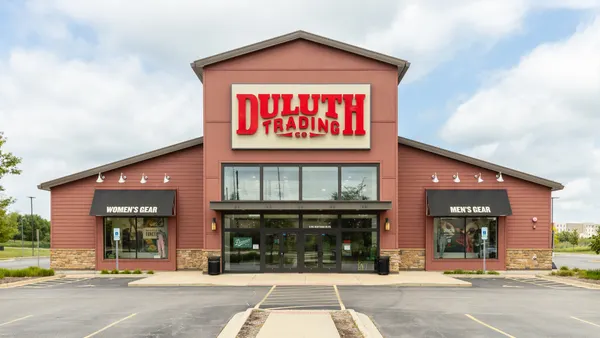Dive Brief:
- Advance Auto Parts' anticipation of the impact of list 3 tariffs, which cover $200 billion worth of Chinese imports, has led it to work with suppliers to mitigate cost increases and, where possible, use "on-hand inventory in lieu of purchasing at higher costs," Jeff Shepherd, the company's CFO, said during a Q2 earnings call.
- Even with mitigation efforts, Advance saw a decrease in adjusted gross profit margin, with the rate falling 42 basis points to 43.3% year-over-year, driven in part by higher costs related to tariffs and inflation, Shepherd said.
- Shepherd noted the company's last in, first out (LIFO) accounting methodology required the absorption of these cost increases as soon as it receives the higher-priced products, though this LIFO impact will even out over time.
Dive Insight:
In a LIFO inventory accounting methodology, the most recently produced or purchased items are the first expensed as cost of goods sold (COGS). As COGS is deducted from net sales, the choice of LIFO accounting has a direct impact on a company's gross profit margin (net sales, less COGS, divided by net sales).
Since the crux of LIFO accounting keys in on Advance's most recent inventory purchases, its suppliers' implementation of increased purchase costs immediately impacts the company's gross profit margin. This impact will require Advance and other retailers in a similar inventory situation to decide if the higher cost of these most recent inventory purchases — as well as those in the near future as the tariffs take hold for an undetermined time — can be recovered in future sales.
Auto parts are less elastic an item than, say, apparel since, if a car owner's timing belt breaks, the owner needs a new one regardless of the price. According to Wells Fargo analyst Zachary Fadem, "as much as 45% of auto-parts products are directly sourced from China. That has hit shares of car-parts suppliers since May 5, when Trump first tweeted his intention to raise tariffs," as reported by Barrons.
On a positive note, Shepherd indicated Advance's anticipation of the tariffs has involved a collaborative effort with suppliers to mitigate inventory cost increases, and it has passed through the cost increases via pricing. However, if the tariffs remain in place for a significant amount of time, Advance will deplete its on-hand inventory, requiring future purchases at higher cost, thereby depressing margins even further.
But unless Advance and the like are able to continue to work with suppliers — or diversify to add new ones — its sales model will require a continued pass-through of the tariff cost to consumers. And if future sales decline and Advance cannot recover the higher cost of these inventories, it may need to recognize an immediate write-down or recognize losses on purchase commitments.














